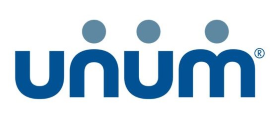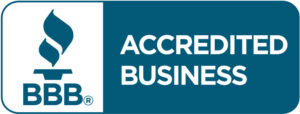
Rental Property and Landlord Insurance
As a property owner, one of the most important steps you can take to protect your investment is obtaining landlord insurance. This specialized form of insurance is designed to safeguard rental properties against a wide range of risks, from property damage to liability claims. In this article, we will explore the essential role that landlord insurance plays in rental property management and provide you with valuable information on the various types of coverage and factors to consider when selecting a policy.
Landlord insurance is not just a nice-to-have, but rather a critical component of any successful rental property management strategy. It provides a financial safety net that can help you weather unexpected events, such as fires, floods, or lawsuits, without putting your investment at risk. By understanding the ins and outs of landlord insurance, you can make informed decisions that will ultimately lead to a more secure and profitable rental property business.
For those new to the world of rental property management, the concept of landlord insurance may seem overwhelming. However, by breaking down the various aspects of this type of insurance, you can gain a better understanding of its importance and how it can protect your investment. In the following sections, we will delve into the different types of coverage, factors to consider when choosing a policy, and tips for comparing and saving on insurance for rental properties.
Why landlord insurance is essential for rental property management
The primary reason that landlord insurance is essential for rental property management is that it provides protection against a wide range of risks that can threaten your investment. As a landlord, you face numerous potential challenges—from natural disasters to tenant disputes—that can result in significant financial losses if not properly insured.
One key aspect of landlord insurance is liability coverage, which protects you from legal claims brought by tenants or visitors who are injured on your rental property. This can be especially important in today’s litigious society, where even minor accidents can lead to costly lawsuits. By having adequate liability coverage, you can have peace of mind knowing that you are protected from potential legal and financial repercussions.
Additionally, landlord insurance covers the physical structure of your rental property, ensuring that you can repair or rebuild in the event of damage from fire, storms, or other covered perils. This is crucial for maintaining the value of your investment and ensuring its long-term profitability. By having comprehensive insurance for rental properties, you can focus on managing your business without the constant worry of potential disasters.
Types of landlord insurance coverage
Landlord insurance policies typically include several types of coverage, each designed to protect different aspects of your rental property business. Understanding these coverages can help you choose the policy that best meets your needs and safeguard your investment.
- Property Damage: This coverage protects the physical structure of your rental property, including the building itself and any attached structures, such as garages or decks. Depending on the coverage selected it can cover the cost of repairing or replacing appliances and systems, such as heating and cooling units, that you provide for your tenants.
- Liability Coverage: As mentioned earlier, liability coverage is an essential aspect of landlord insurance. It protects you from legal claims brought by tenants or visitors who are injured on your property, covering legal fees, medical expenses, and any settlements or judgments that may result from a lawsuit.
- Loss of Rental Income: In the event that your rental property becomes uninhabitable due to a covered peril, this coverage can help you recoup the lost rental income while repairs are being made. This can be a crucial financial lifeline for landlords who rely on rental income to cover their mortgage payments and other expenses.
- Optional Coverage: Depending on your specific needs and circumstances, you may wish to consider additional coverage options, such as landlord contents coverage, which protects your personal property used in the rental, or coverage for acts of vandalism or theft by tenants.
Important factors to consider when choosing rental property insurance
When selecting a landlord insurance policy, there are several important factors to consider. By taking the time to carefully evaluate your needs and compare policies, you can ensure that you choose the right coverage for your rental property business.
- Coverage Limits: It’s essential to choose coverage limits that adequately protect your investment. This includes both the property damage coverage for your rental property and the liability coverage to protect you from legal claims. Be sure to consider the replacement cost of your rental property, as well as the potential costs of lawsuits when determining your coverage limits.
- Deductibles: Your deductible is the amount you will pay out-of-pocket before your insurance coverage kicks in. Generally, higher deductibles result in lower premiums, but they also mean more financial responsibility for you in the event of a claim. Consider your financial situation and risk tolerance when selecting a deductible for your landlord insurance policy.
- Exclusions: Be aware of any exclusions in your policy, as these are events or circumstances that your insurance will not cover. Common exclusions include damage from floods or earthquakes, which typically require separate policies, and intentional damage caused by the landlord.
- Policy Endorsements: Endorsements are optional coverage add-ons that can tailor your policy to meet your specific needs. For example, you may wish to add coverage for rental property improvements or add an endorsement for acts of terrorism. Carefully consider your rental property’s unique risks and needs when evaluating potential endorsements.
Common landlord insurance claims and how to avoid them
As a landlord, it’s essential to be aware of the most common insurance claims and take steps to prevent them from occurring at your rental property. By doing so, you can minimize the likelihood of financial losses and maintain a more profitable rental property business.
- Water Damage: Water damage, often resulting from burst pipes or leaks, is a common source of landlord insurance claims. To avoid this issue, regularly inspect your property for signs of water damage and ensure that all plumbing systems are properly maintained.
- Fire: Fires can result from a variety of causes, such as electrical issues or unattended cooking. To prevent fires, ensure that your rental property has working smoke detectors and that tenants are educated about fire safety practices.
- Liability: Slip-and-fall accidents are a common liability claim for landlords. To minimize this risk, keep walkways and common areas well-maintained and free of hazards, such as ice or debris.
- Vandalism and Theft: Vandalism and theft by tenants or others can result in costly damage to your rental property. To deter these incidents, consider installing security cameras or a monitored alarm system and carefully screen potential tenants.
The cost of insurance for rental property and how to save
The cost of landlord insurance can vary widely depending on factors such as the location of your rental property, the coverage limits and deductibles you choose, and the specific risks your property faces. While it’s important to find a policy that meets your budget, it’s also crucial to ensure that you are adequately protecting your investment.
To save on insurance for rental properties, consider the following strategies:
- Maintain a Good Credit Score: Many insurance companies use your credit score as a factor in determining your premium. By maintaining a good credit score, you may be eligible for lower rates.
- Ask About Discounts: Many insurance companies offer discounts for things like installing security systems, having a good credit score, or being a member of a professional organization. Be sure to ask about any potential discounts when obtaining quotes.
- Consider Bundling: Many insurance companies offer discounts for bundling multiple policies, such as landlord insurance and your personal homeowners or auto insurance. If you have multiple insurance needs, consider using the same provider to take advantage of these savings.
- Regularly Review Your Policy: Periodically review your policy to ensure that you are not over-insured or under-insured. Adjust your coverage limits and endorsements as needed to reflect your current needs and risk exposure.
Conclusion: Securing your investment with landlord insurance
In conclusion, landlord insurance plays a vital role in safeguarding your investment in rental property management. By understanding the various types of coverage, important factors to consider when choosing a policy, and tips for comparing and saving on insurance, you can make informed decisions that will ultimately lead to a more secure and profitable rental property business.
Don’t leave your investment unprotected—ensure that you have comprehensive landlord insurance in place to protect against the many risks that can threaten your rental property. Contact Integrated Insurance Advisors, to quote your insurance.



























